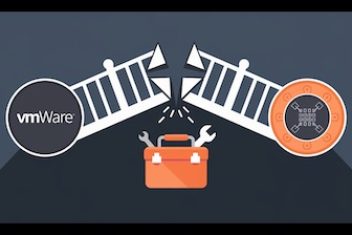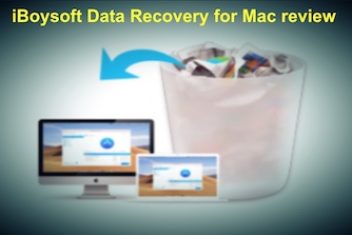By Ezra Bishop – People have ID cards and social security numbers, cars have license plates, and internet-connected devices have IP addresses. Many myths exist regarding which information an IP address reveals. Why is your IP address important, and how to find it and protect it if necessary? That’s what we’ll discover in the guide below!
What Is an IP Address
The abbreviation IP stands for “Internet protocol.” Once you connect a device to the internet, that device receives an IP address. That address serves to communicate with websites and other internet users.
An IP address doesn’t use letters but rather numbers. It’s a string of digits, and it’s generated by your ISP – internet service provider. Each address is unique, similar to house and apartment addresses. It’s how the entire internet communicates with your device.
Read: How to find your IP address in Linux
What Is the Purpose of an IP Address
You can consider the IP address to be the address of your laptop, computer, or any other web-connected device. It shares your geolocation and assists in viewing relevant content while browsing the internet. If you look for local car mechanics, the search engine will know to display those in your area.
How to Find Your IP Address
An IP address lookup only takes a few seconds. It’s simple, and you don’t need any advanced knowledge. Once you connect to the internet, enter the phrase “what’s my IP address” in a search engine. You’ll immediately see your IP address displayed on the screen. This is your computer’s identification, and the computer is aware of it because it’s necessary to surf the web.
If you change the router or Wi-Fi network, you’ll notice that your IP address adjusts accordingly. However, that doesn’t affect your surfing activities. You won’t even know the difference while browsing the web.
What Information Does My IP Address Reveal
An IP address shows someone’s geolocation, but it’s important to understand what that actually means. You can never learn someone’s name, actual physical address, or phone number. It usually points to the closest server of your internet provider. Rather than this detailed personal information, an IP address could only reveal:
- Area code
- ZIP code
- City
Interestingly, this is why a new router or Wi-Fi network would change your IP address. The address won’t reveal your actual device. However, it might discover whether you use a smartphone, tablet, or a computer to connect to the internet.
Read: Best Apps to Trace Mobile Number Location, Caller Name and Address
How Others Can Find Your IP Address – and Why They Want to
Here’s the important note – you can search your IP address on the web. However, it’s not that easy for someone else to discover your address.
Now, you use this string of numbers as identification on the internet. But as you use it to open emails, read blogs, or communicate on forums, you leave a digital footprint in those virtual locations.
Here’s who could discover your IP address:
- Digital platforms you visit
- Hackers that breach your device security
- Someone taking your device and searching for its IP address
- Government and law enforcement based on subpoenas
Once they have the address, someone could use an IP lookup service. This involves entering an address and learning about the geolocation.
Read: IP addresses: can you change your location
Is It Dangerous If Somebody Knows Your IP Address
It’s all about how someone uses that information. The IP address isn’t dangerous, and most services use it with caution. For example, many platforms use them to block spammers and create blacklist databases.
Advertisers utilize them to deliver customized ads, and subscription services could restrict certain regions based on that information. Even you could benefit from someone’s IP address. For example, if you meet a potential partner online, you can use the IP address to discover that they are in the area where they claim they reside.
What Exactly Does IP Address Show: Myths VS Reality
There are many misconceptions regarding what your IP address reveals. Here are the common myths among the users:
- Myth #1. Geolocation with an IP address isn’t accurate enough.
- Reality#1. This depends on a number of factors. VPNs and proxies could make it more difficult to figure out someone’s address. But a reliable IP address tracker could provide huge accuracy for determining the country, state, and city.
- Myth #2. There are better ways to discover geolocation than the IP address.
- Reality #2. Some alternatives are available, such as registration data, cookies, GPS info, etc. However, each comes with its downsides and restrictions.
- Myth #3. Getting information from the IP address geolocation service depends strongly on ISPs.
- Reality #3. Most providers have a specific address range they use. However, router restarts lead to re-allocating a portion of addresses. It’s not wise to rely on providers for geolocation, which is why most geolocation services use JavaScript.
- Myth #4. Mobile phones aren’t reliable in delivering geolocation data.
- Reality #4. While you often move around with your mobile phone, most people don’t leave their area codes frequently. And if they do, you could identify them as frequent travelers. That’s helpful information for businesses developing their advertising strategies.
- Myth #5. Geolocation is only about discovering someone’s location.
- Reality #5. Geolocation can provide many other valuable data besides the location. For example, you could learn if users use mobile or Wi-Fi networks and additional info that could tailor customer profiles.
Read: How to Block an IP address on a Linux server
How to Protect Your IP Address & Why You Need It
You have several options to protect your IP address:
- A proxy server. All your traffic would go through this server.
- VPN. It’s short for a virtual private network. It also offers another server, similar to a proxy. Another advantage is that VPN encrypts all data related to your web activity.
- Anonymous browser. Tor is the most common, but any browser that keeps your internet activity anonymous would do.
Why would you need to hide your IP address? It could be that your ISP is monitoring your activity, and you don’t like that. Some providers limit the connection speed when streaming videos, and protecting your IP address is the way to avoid this issue.
Conclusion
It’s important to separate facts from myths about an IP address geolocation service. Of course, you need to safeguard your IP to avoid unnecessary risk. But IP addresses are necessary on the internet, and using geolocation services isn’t a threat. Furthermore, an IP address is quite reliable for discovering geolocation. That info is useful for the area code, the person’s device, and other details. It could be beneficial for marketing purposes and businesses that could appreciate learning more about their visitor profiles.
BIO: Ezra Bishop is the customer success manager at WhatIsMyIpAddress. He helps customers learn how things operate and enjoy sharing his knowledge and experience through blogging.

If you like the content, we would appreciate your support by buying us a coffee. Thank you so much for your visit and support.




You can consider the IP address to be the address of your laptop, computer, or any other web-connected device. It shares your geolocation and assists in viewing relevant content while browsing the internet. If you look for local car mechanics, the search engine will know to display those in your area.